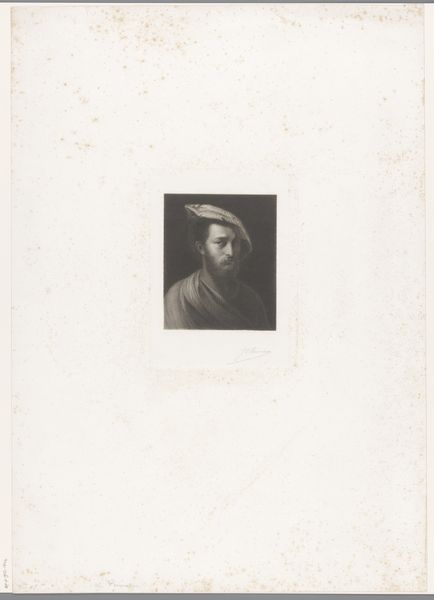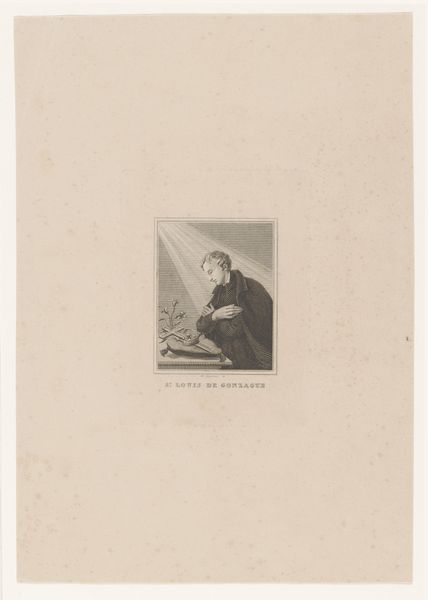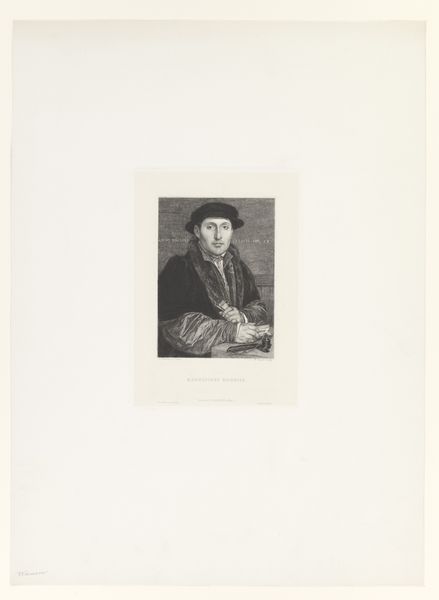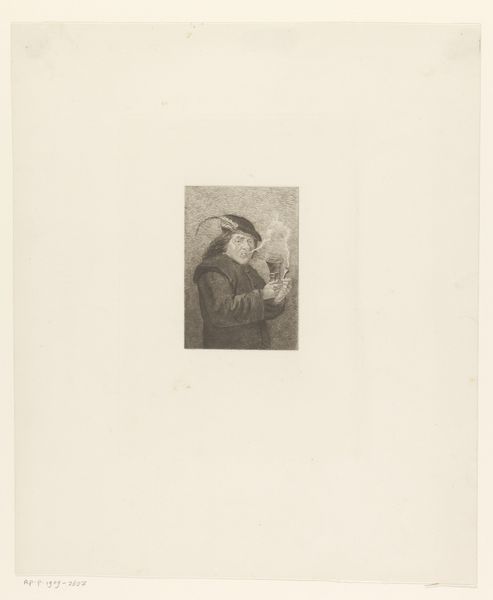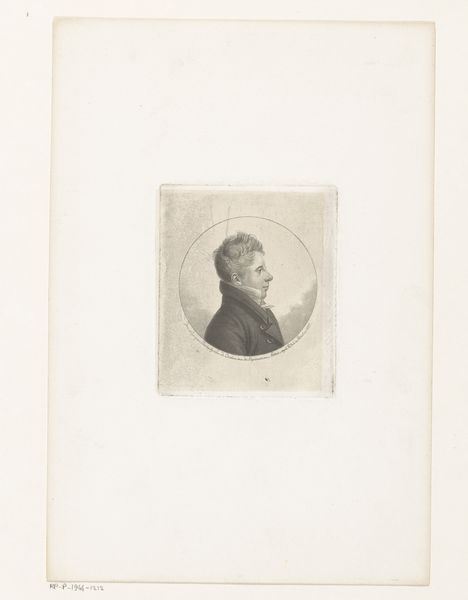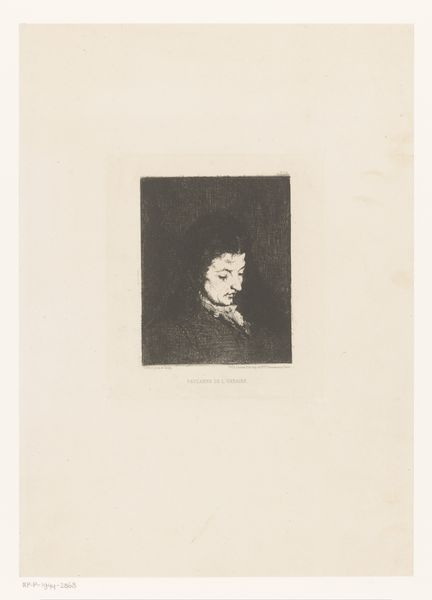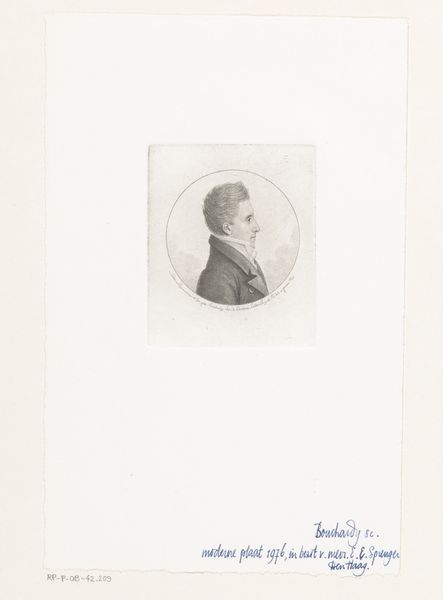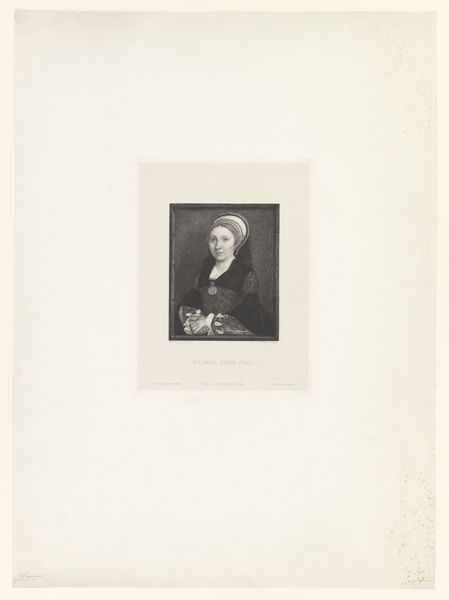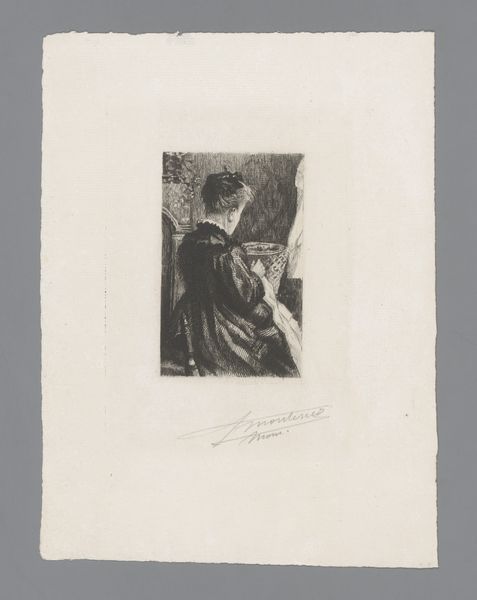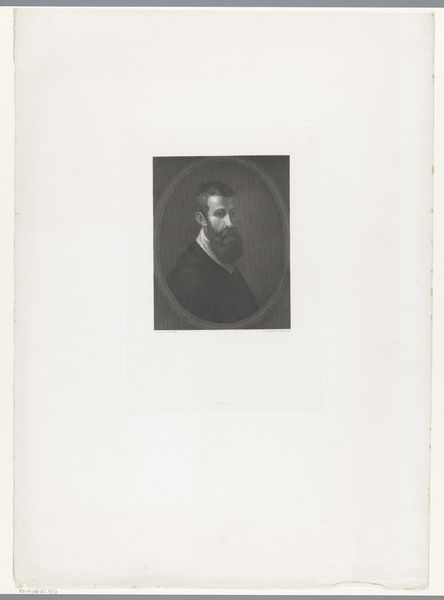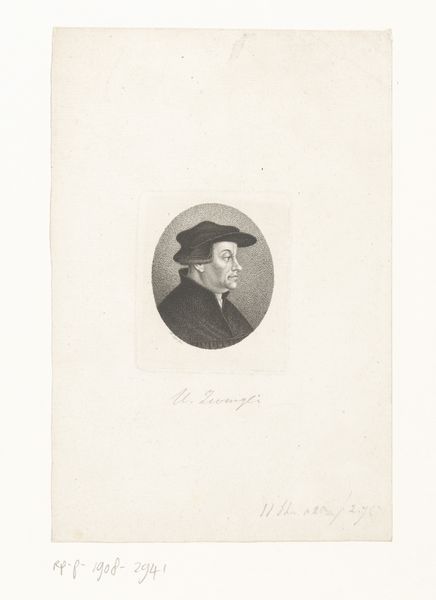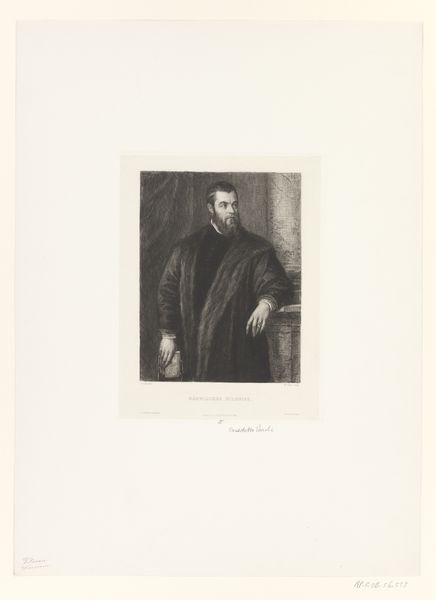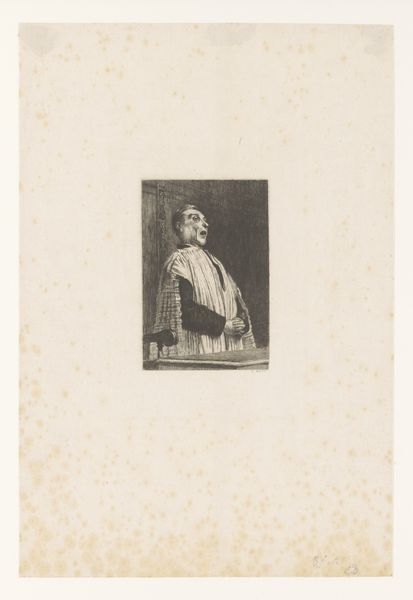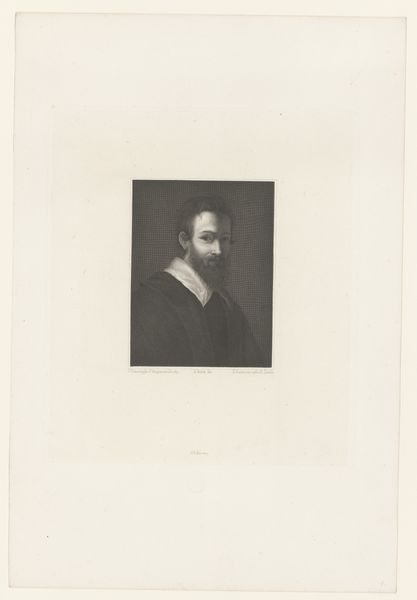
drawing, print, engraving
#
portrait
#
drawing
# print
#
romanticism
#
engraving
Dimensions: height 327 mm, width 243 mm
Copyright: Rijks Museum: Open Domain
Editor: This is Jacques Etienne Pannier's "Portrait of Raphael," an engraving from 1844. It has a melancholic feel to it, a kind of quiet introspection. What symbols do you think Pannier is using in this image? Curator: Indeed. Beyond being a portrait, this engraving performs a symbolic act. We're seeing a 19th-century artist, Pannier, visualizing a Renaissance master. How do you think the *act* of picturing Raphael, so long after his life, affects the image’s meaning? Editor: Hmm, I suppose it suggests Raphael's enduring legacy, a kind of visual monument. Does the pose add to that? Curator: Absolutely. Consider the hand supporting the head, a classic gesture of contemplation. It references a visual vocabulary going back centuries, signaling intellectual depth. Raphael, already legendary, is here presented as the epitome of artistic genius, brooding perhaps on the weight of his own talent and accomplishment. But I wonder about the relationship between the image and the engraving medium itself. What does printmaking lend to this symbol making? Editor: Well, engravings allow for the reproduction of images, enabling wider distribution. So this image of Raphael as a genius could be widely disseminated, reinforcing that idea? Curator: Precisely! Pannier isn't simply showing us Raphael; he's actively shaping, and re-circulating, a cultural memory. Notice how this “copy” can be endlessly copied… What’s reproduced is an idea of genius. Editor: That's fascinating. I hadn't considered the role of the medium in constructing Raphael's image. Curator: Thinking about visual symbols lets us unravel how history and memory get packaged and reshaped, generation after generation. Editor: I will never look at a portrait the same way. There's so much more to unpack than just who is represented!
Comments
No comments
Be the first to comment and join the conversation on the ultimate creative platform.
